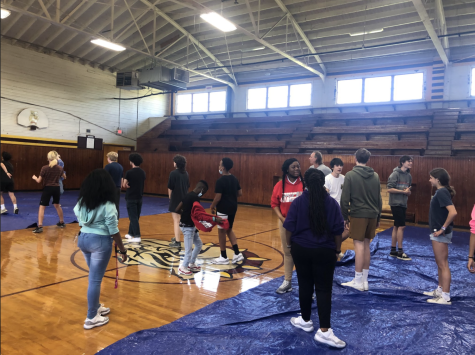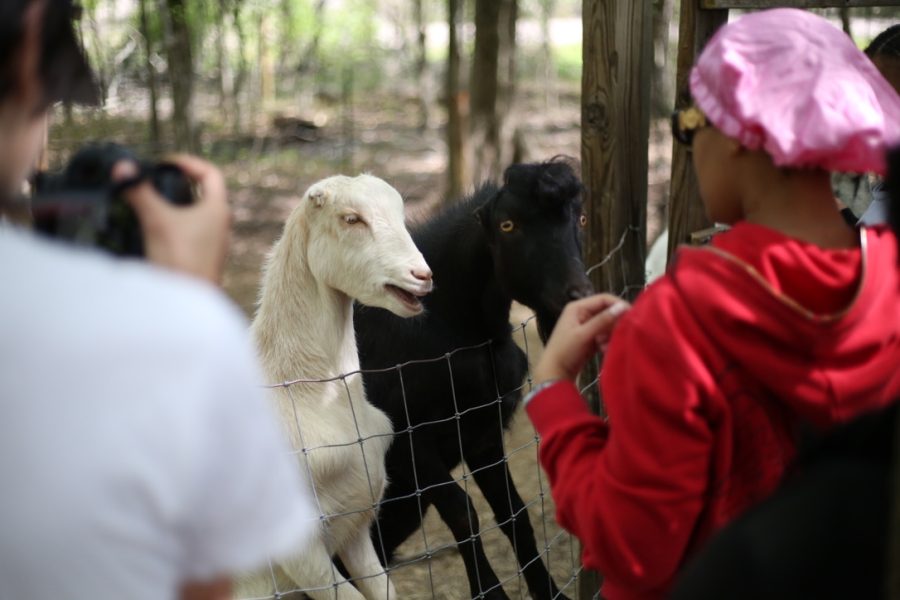An overview of Urban’s Mississippi Trip
After a long hiatus due to COVID-19, Urban’s Mississippi Trip has returned for the first time since 2018! Urban’s first Mississippi Trip was in 1998. During spring break, 17 students and three chaperones traveled to the South to learn about the Civil Rights Movement and Black Southern culture. We started the trip in Tennessee, traveled to multiple towns in Mississippi, canoed into Arkansas and ended our trip in Alabama. Thank you to all of the people we met who embraced us with such warmth and kindness.
Young Family Farms – Cleveland, MS
On our second day of the trip we visited Young Family Farms, a Black-owned farm that has been maintained by the Youngs for over 40 years. Naya Woods ‘24 said, “The broader [historical] context is that a lot of times Black farmers [weren’t] able to own [land]. So seeing a family who created the land, built it and really fostered a community … was really impactful.”
Young Family Farms also hosts community building events with students from schools around the Mississippi Delta. During our visit to the farm, we planted onions, gardened, pet goats and watched live music with high schoolers from three different schools between Mississippi and Minnesota. Despite all the possible differences in hometowns and upbringings, Urban students were able to bond with other teenagers they met on the farm. Page Sparks ‘24 said, “I met this girl Muriella and I was asking her all these questions and I feel like I really got to know her.”
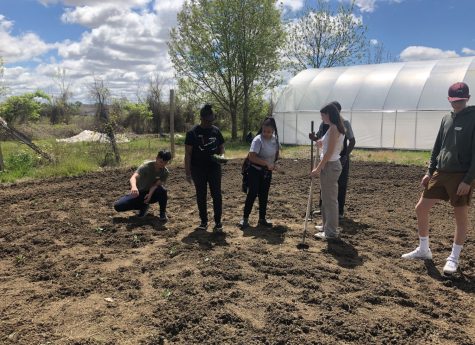
CH-PIER – Greenville, MS
We visited Community Health-Prevention, Intervention, Education and Research (CH-PIER) in Greenville, Mississippi on our sixth day of the trip. CH-PIER was created in 2017 by brother and sister Cedric and Gloria Sturdevant after they witnessed disparities surrounding HIV education and prevention in the South. CH-PIER also provides a wide range of training programs from agriculture and gardening to heart and breast health development.
In an interview with The Urban Legend, Co-Director of CH-PIER Cedric Sturdevant said, “You still have people that are afraid to talk about it and don’t want to come out with their status and some don’t even want their families to know because of the stigma that surrounds HIV here in the Delta area.” With living in San Francisco, the home of advocacy for the HIV epidemic, it was really eye opening to hear about the social stigmatization of HIV in the South.
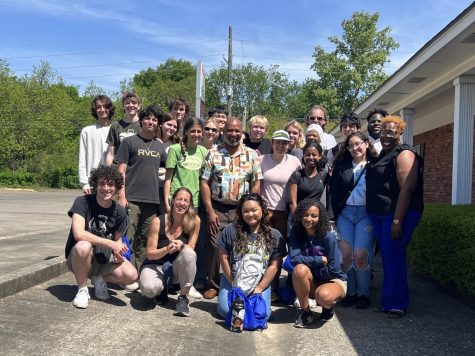
Legacy Museum – Montgomery, AL
We went to The Legacy Museum on day eight. It was the final museum we attended on the trip. Chronologically following the Middle Passage to the Civil Rights Movement, and ending at mass incarceration, it was also the most historically expansive museum we saw. “It was a [really] sensory full body experience that’s supposed to shake people,” said Woods.
As opposed to learning in the traditional classroom setting through readings, the Legacy Museum immerses all of your senses using art, documentaries, audio clips, readings and maps.
“It’s supposed to kind of make it so you’re transported to a different time and you’re kind of placed into this narrative that a lot of times people kind of feel very separate from or distant from,” Sparks added. “The whole trip was like you can learn about all of these things on a piece of paper, read about it, or watch a film, but it’s another thing to be in the place of history.”
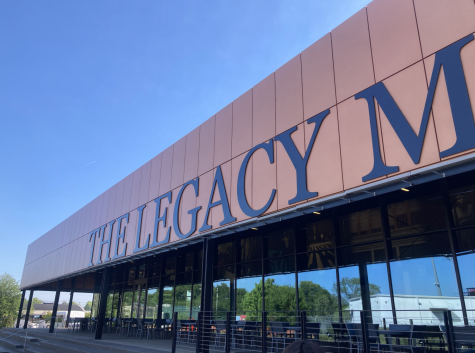
Ruleville MS – Cleveland, MS
We visited Ruleville Middle School in Cleveland, Mississippi on our second day of the trip. At Ruleville Middle School, we connected with students playing basketball, were led by fabulous student guides, met teachers and students and were warmly embraced into a new community.
Their Principal, Ernest Nelson, has had a long relationship with one of our chaperones and pioneers of the trip, English Teacher Courtney Rein. Principal Nelson was also an integral part of the previous Mississippi Trip in 2018, as he was Vice Principal of the high school Urban students visited.
At Ruleville, they have yearly mandatory state testing. When we visited, they were preparing for state testing and parents had made individualized signs of encouragement for their students.
“I think the parents are a big part of it, because I feel like the biggest thing we saw [was] parent involvement and parent encouragement,” said Brown Schneider ‘24. “Whereas here, it’s less support in terms of words of encouragement and more just giving money to the school.”
Spending time with Ruleville students and getting to form connections with them was one of the most impactful parts of our trip. We received a school tour from them where we ate fried Oreos and played basketball, we shared dinner with them and finally we went canoeing with a few students.
The generosity that we have been shown on this trip is immeasurable. Next year, a group of students from Ruleville who toured and welcomed us will hopefully visit Urban. I hope that when they visit Urban next year, our community will reciprocate the kindness they have shown us.
